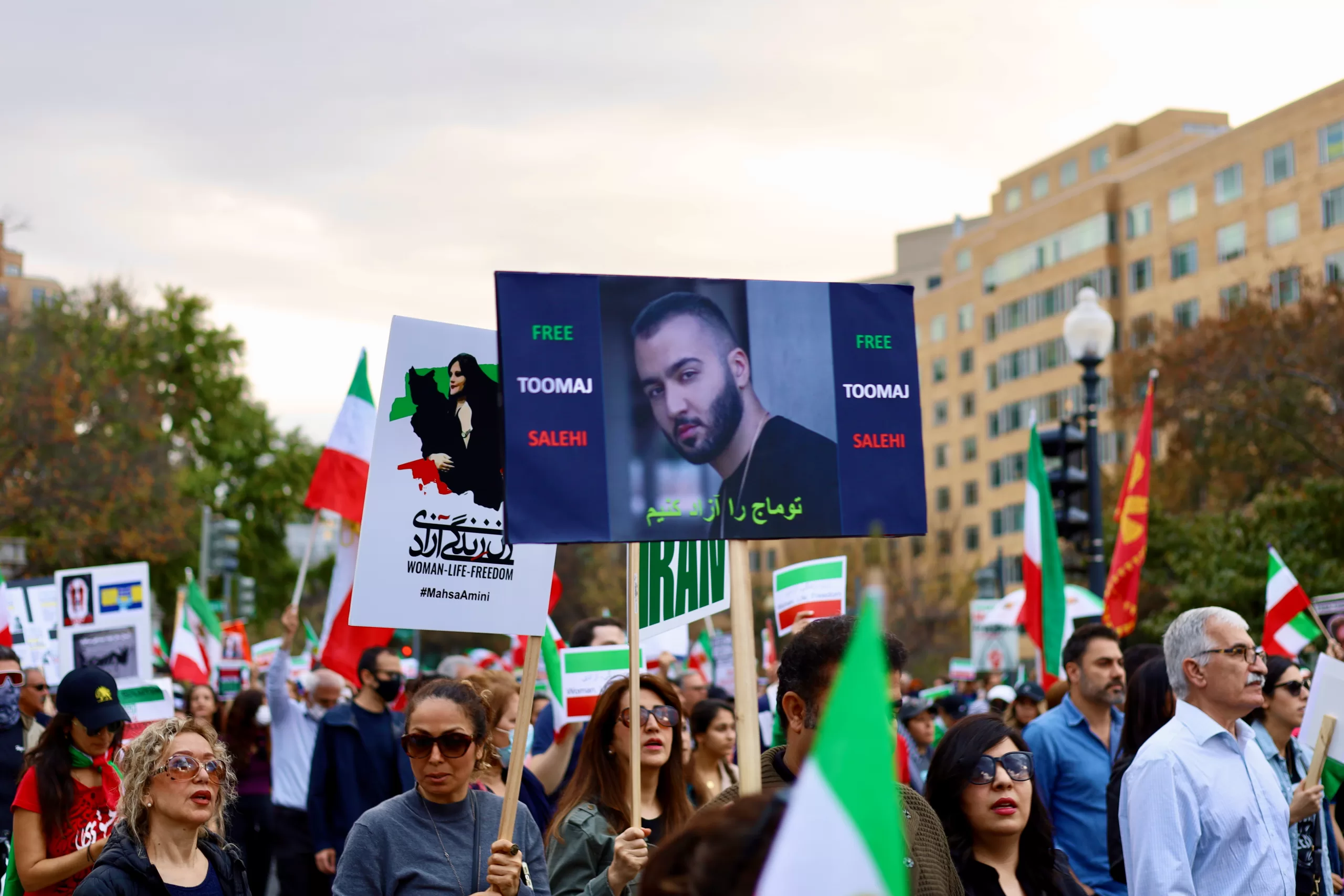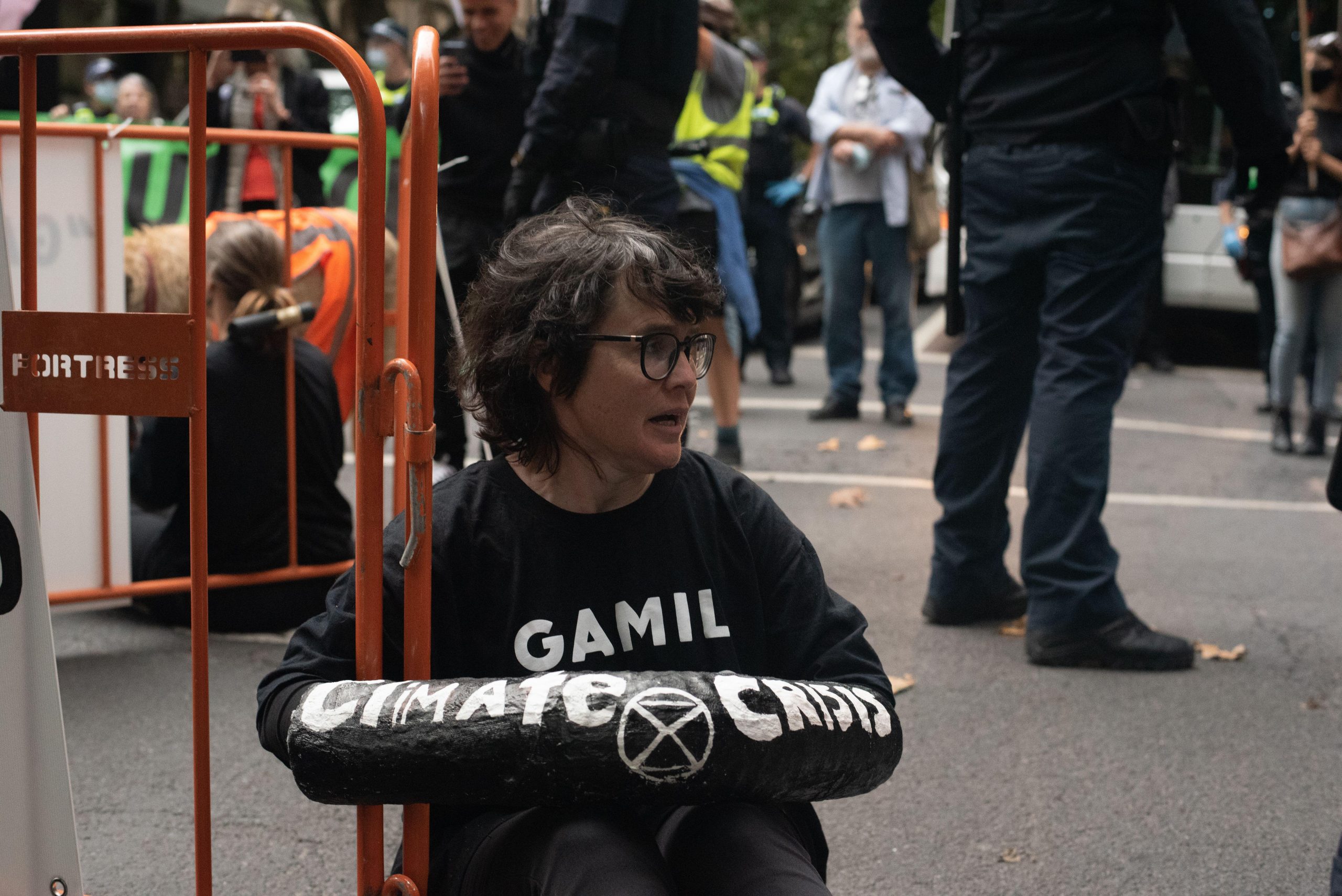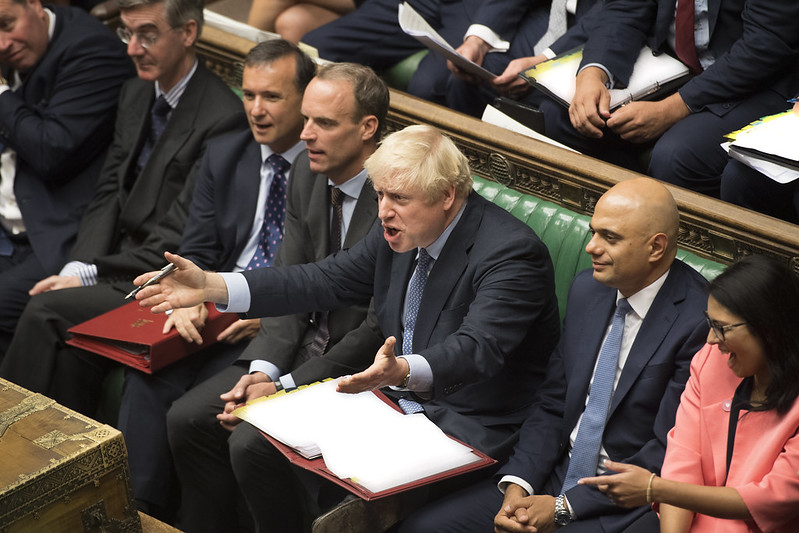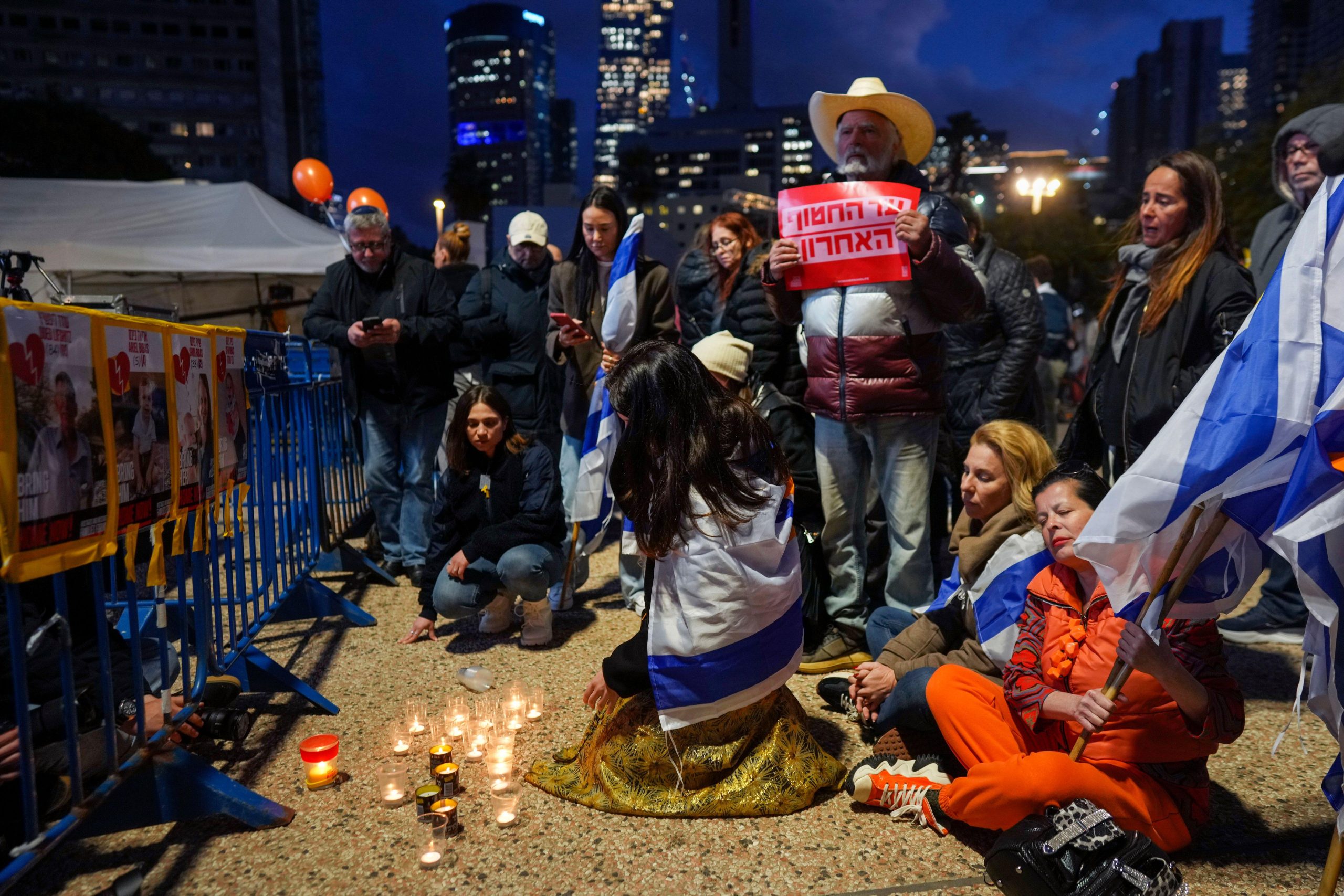We at Index on Censorship were rocked by last week’s news that Iranian rapper and human rights defender Toomaj Salehi has been sentenced to death for “spreading corruption on earth” following his involvement in the country’s Woman, Life, Freedom protests. The news was widely received with outrage and triggered significant pushback. Protests took place in cities all over the world, while a social media campaign calling for his release led to the hashtag #FreeToomaj trending on X (formerly Twitter). We joined with organisations PEN America and Artists at Risk Connection (ARC) to voice our condemnation of the Iranian’s sentence.
At Index we are committed to campaigning for Toomaj – the winner of Index’s 2023 Arts Freedom of Expression Award – to be freed from his unjust and outrageous sentence. However, this is not an isolated case. Another Iranian, Abbas Daris, was also sentenced to death for his role in the protests in 2021, although he was granted a retrial in 2023. Iran Human Rights director Mahmood Amiry-Moghaddam said in a statement: “There’s no evidence against him but torture-tainted forced confessions, his sentence is unlawful not only according to international laws but even according to the Islamic Republic’s own laws.”
Similarly, in October 2023 Iranian Kurdish man Reza Rasaei, who was involved in the protests, was sentenced to death after being convicted of murder in a trial described by Amnesty International as “grossly unfair” due to the use of Rasaei’s confessions obtained through torture as evidence.
Other citizens have been jailed for their part in advocating for human rights. Asghar Nikoukar, a musician who played music at the graves of those killed during the protests, was sentenced to five years in prison. He has now been released but with an electronic tag, meaning he will spend the remainder of his sentence outside jail with limited mobility.
Earlier this week, news broke of one Iranian woman who had endured an even worse fate. A leaked document understood to have been written by Iran’s security forces revealed that Iranian teenager Nika Shakarami, who disappeared from an anti-regime protest in 2022 and whose body was found nine days later, was sexually assaulted and killed by three men. The Iran government claimed she took her own life.
The government has targeted those in the state fighting for women’s rights and human rights for many years, a worrying trend that has significantly increased since the Woman, Life, Freedom protests of 2022. The protests were sparked by the death of Mahsa “Jina” Amini in September of that year after being detained by Iran’s “morality police” for not wearing a headscarf. According to human rights groups, during the protests security forces used lethal force on protesters and killed more than 500 people.
Some of those who participated in the protests have already been executed by the Iranian regime. A report from two campaign groups – Norway-based Iran Human Rights (IHR) and France’s Together Against the Death Penalty (ECPM) – found that at least eight protesters were executed in 2023, six of whom had been arrested in relation to the Woman, Life, Freedom demonstrations and sentenced after unfair trials.
“Instilling societal fear is the regime’s only way to hold on to power,” Iran Human Rights Director Mahmood Amiry-Moghaddam told the BBC in the wake of the report.
Salehi was already a well-known rapper who was renowned for his songs critiquing the Iranian regime, and had been arrested and imprisoned in 2021 for “propaganda against the regime” and “insulting the supreme leadership authority”. His decision to continue to throw his weight behind the Woman, Life, Freedom protests despite this is a testament to his incredible bravery. His case is incredibly important and urgent, as are the cases of the many others who have been punished for peaceful protesting.
There is a risk that external affairs, such as the state’s current involvement in the Israel-Gaza war, has overshadowed the injustices faced by those inside the country. We published an interview with Iranian film-maker Vahid Zarezadeh last week, who expressed his concern that the fate of protesters in Iran are being forgotten under the circumstances.
“Governments often utilise external conflicts to divert attention from domestic issues,” Zarezadeh said.
Toomaj’s case cannot be viewed as a one-off, but as a result of the actions of an authoritarian state systematically persecuting those who speak out against the regime, whether or not they have a large profile. We can’t allow the extent of the issue to go under the radar.






